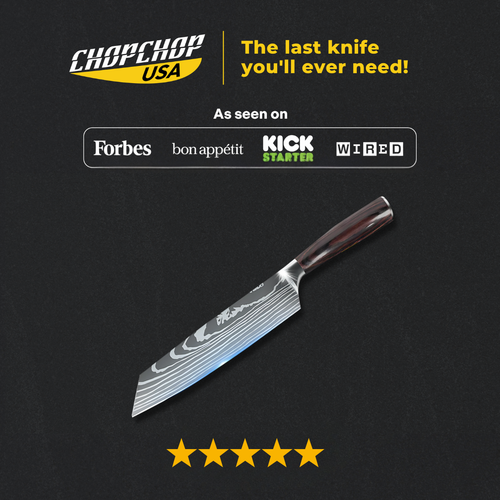Why Titanium Resists Stains

Traditional cutting boards often stain after repeated use, especially with colorful foods like beets or tomatoes. Titanium solves this problem with its non-porous, stain-resistant surface, clearly answering does a titanium cutting board absorb stains or odors?
The Problem with Traditional Cutting Boards
One of the biggest frustrations with traditional cutting boards is staining. Slice a beet, chop turmeric, or dice tomatoes, and you may end up with stubborn marks that never fully wash away.
Most cutting boards, especially those made of plastic or wood, have microscopic pores that trap pigments and juices, leading to long-term discoloration. This shows why does a titanium cutting board absorb stains or odors? is a common concern with other materials.
Titanium’s Non-Porous Advantage
Titanium is entirely different. It is a non-porous and inert metal, meaning it does not have tiny holes or fibers for liquids or pigments to seep into. Food colorants stay on the surface instead of penetrating the material.
As a result, stains wipe away effortlessly, even after preparing foods that are notorious for leaving marks. This is a key reason does a titanium cutting board absorb stains or odors? is answered with a confident “no.”
ChopChop USA’s Stain-Resistant Design
ChopChop USA titanium cutting boards are crafted with premium-grade titanium designed to resist surface wear and maintain a sleek, polished finish. Unlike boards that lose their appearance over time, these cutting boards stay consistently fresh, reinforcing why does a titanium cutting board absorb stains or odors? is not an issue.
Why Titanium Resists Odor

Many cutting boards hold onto smells from foods like garlic, onions, and fish. Titanium’s non-porous surface prevents odor buildup, keeping it fresh and clean. This ensures does a titanium cutting board absorb stains or odors? remains a non-problem for everyday use.
The Odor Problem with Traditional Boards
Odor absorption is common with wood or plastic boards. Foods like garlic, onions, and fish leave lingering smells because porous materials trap tiny food particles. This is exactly why does a titanium cutting board absorb stains or odors? is often asked by home cooks.
Titanium’s Non-Absorbent Surface
Titanium cutting boards, such as those from ChopChop USA, avoid this issue completely. Titanium is non-absorbent and non-reactive, so food molecules or oils remain on the surface where they can be rinsed away. Even after slicing pungent foods, a quick wash restores the board to an odor-free state, directly showing why does a titanium cutting board absorb stains or odors? is answered “no.”
Built for Hygiene and Freshness
Another benefit of titanium is its resistance to corrosion, even when exposed to moisture and acidic foods. This prevents hidden crevices from forming, where bacteria and smells usually accumulate.
Read more: Are Titanium Cutting Boards Resistant to Bacteria?
ChopChop USA’s titanium boards are engineered with a smooth, durable surface that’s simple to sanitize — whether handwashed with soap or placed in the dishwasher. For cooks who value cleanliness and freshness, titanium is a superior choice that keeps kitchens free of stubborn odors.
Pros and Cons of Titanium Cutting Boards

Titanium cutting boards are known for their strength, hygiene, and resistance to stains and odors. However, like any kitchen tool, they come with both benefits and drawbacks. Let's discover:
Pros of Titanium Cutting Boards
Stain Resistance
Titanium’s non-porous nature ensures it does not absorb pigments, so the board always looks clean and polished.
Odor Resistance
Unlike wood or plastic, titanium does not trap food particles, preventing lingering smells.
Durability
Titanium is incredibly strong and resistant to scratches, dents, and warping, making it a long-lasting investment.
Hygienic Surface
The smooth, inert surface reduces the risk of bacterial growth, making it one of the safest materials for food prep.
Low Maintenance
Easy to clean and sanitize — simply rinse, scrub, or place in the dishwasher.
Cons of Titanium Cutting Boards
Knife Friendliness
Titanium is harder than traditional materials, which can dull knife edges faster. Chefs may need to sharpen knives more often.
Weight
Titanium cutting boards can be heavier than plastic or wooden boards, making them less convenient to move around for some users.
Cost
Due to the premium material and durability, titanium boards are typically more expensive than standard cutting boards.
Surface Feel
Some home cooks may find the metallic feel less natural compared to wood or bamboo.
Overall, titanium cutting boards like those from ChopChop USA offer exceptional hygiene, longevity, and resistance to stains and odors. While they may require a slightly higher upfront investment and extra knife care, their benefits often outweigh the drawbacks, particularly for those who cook frequently and want a clean, reliable surface for years to come.
Conclusion
Titanium cutting boards excel at resisting stains and odors thanks to their non-porous, non-reactive nature. Unlike wood or plastic boards, they don’t absorb pigments, liquids, or smells, fully answering does a titanium cutting board absorb stains or odors?
While they may be more expensive and require extra knife maintenance, their durability and ease of cleaning make them a long-term investment. With ChopChop USA Titanium cutting board and Double-Sided Titanium Cutting Board, home cooks and professionals alike can enjoy a fresh, stain-free, and odor-free food preparation experience every time.
For more amazing recipes, follow me on Facebook and Instagram! If you have any questions about ChopChop USA's products or promotions, please feel free to contact us at support@chopchopusa.com. Our dedicated team is available 24/7 and always happy to assist you.
Frequently Asked Questions
1. Are titanium cutting boards dishwasher-safe?
Yes, ChopChop USA titanium boards are dishwasher-safe and resistant to heat and corrosion.
2. Do titanium cutting boards damage knives?
Titanium is harder than wood or plastic, so knives may dull faster. Regular sharpening helps.
3. How long will a titanium cutting board last?
With proper care, titanium boards can last decades without staining, warping, or odor buildup.
4. Is titanium more hygienic than plastic cutting boards?
Yes, because it is non-porous, titanium is easier to sanitize and less prone to bacteria growth.
5. Can I cut raw meat and vegetables on the same titanium board?
Yes, but clean and sanitize between uses. Titanium’s non-absorbent nature makes it ideal for preventing cross-contamination.
Read more: Is It Safe To Cut Raw Meat On A Titanium Cutting Board?




